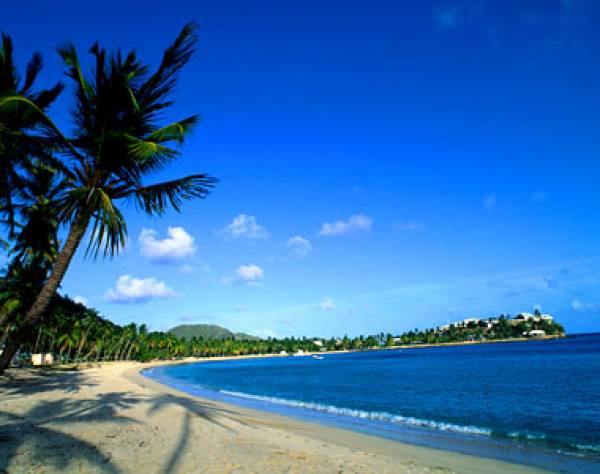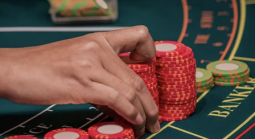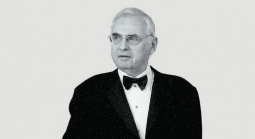Antigua Disappointed with WTO ‘Nonaction’ Against US re Online Gambling Dispute

GENEVA, Switzerland – Antigua and Barbuda has told the World Trade Organization (WTO) that it is disappointed that it has not been allowed to raise its ongoing dispute with the United States on Internet gambling, despite the matter being before the world body for many years.
Antigua and Barbuda’s High Commissioner to London, Carl Roberts, addressing the WTO Dispute Settlement Body on Monday, said that the Baldwin Spencer administration had submitted to the WTO Secretariat a request for the matter to be included on the agenda for deliberation.
“Unfortunately, we will not be requesting this authorisation today because the Secretariat, in consultation with the United States, decided that our request was untimely, despite being here in this building prior to the completion and dissemination of the notice.
“Antigua and Barbuda is a small, developing country, under particular economic stress in these difficult times. We haven’t the resources to maintain a mission here in Geneva, and the prosecution of this case and the pursuit of our rights under the WTO agreements have been expensive, enormously time consuming and difficult.
“It is very unfortunate that we were, under all circumstances, denied the ability to present our suspensions request to this body today. We will be back to do so in January,” Roberts said.
Scroll Down For More...
In 2007, the WTO awarded Antigua and Barbuda the right to target U.S. services, copyrights and trademarks in retaliation for its online betting ban. But the WTO capped the limit of annual trade sanctions at US$21 million.
The Spencer administration had sought the right to impose US$3.4 billion in retaliatory measures, while Washington offered a mere US$500,000.
In 2003, St. John’s initiated WTO dispute proceedings against U.S. federal and state laws barring foreign participation in U.S. Internet gambling markets. The WTO, in rulings in 2004 and 2005, found that the U.S. had violated its 1994 General Agreement on Trade in Services (GATS) which the WTO said allows Internet gambling.
The WTO has upheld rulings striking down the U.S. ban, but in 2006, Washington prevented U.S. banks and credit card companies from processing payments to online gambling businesses outside the country.
Roberts told the WTO, notwithstanding the disappointment at not having the matter addressed, Antigua and Barbuda was again reiterating its position on the matter.
“We did not come to the decision to exercise our suspension rights lightly. The first dispute settlement panel ruled in our favour in 2004. The “reasonable period of time” in our case expired on the 3rd of April, 2006. And the report of the arbitrators under Article 22.6 of the DSU was released almost exactly five years ago, in December 2007.
“In the meantime, what was once a multi-billion dollar industry in our country, employing almost five percent of our population has now shrunk to virtually nothing. A number of our citizens have been criminally prosecuted, and a number are still under the spectre of arrest, prosecution and incarceration by American authorities, for ostensibly violating the very laws ruled in violation of US obligations under the GATS in our case,” Roberts said.
He told the WTO that domestic remote gaming is growing in the United States and thereby having an economic impact on Antigua and Barbuda.
“Over the years since our last WTO proceeding in this matter, our government have not been sitting idly by. Nor have we been imposing unrealistic or unbending demands upon the United States. In point of fact, Antigua and Barbuda has been working hard to achieve a negotiated solution to this case.”
But Roberts said efforts at a compromise have been exhaustive.
“We have tabled proposal after proposal to the US government, and attended session after session, in pretty much every case involving our delegation travelling to Washington, D.C., in hopes of finding some common ground.
“But to date, the United States has not presented one compromise offer of their own, and in particular the USTR has made, to our belief, no sincere effort to develop and prosecute a comprehensive solution that would end our dispute.”
Roberts said that St. John’s now has no idea how the United States resolves the other disputes it has been involved in.
“We have spent the past five years searching, at great expense and considerable effort for our little country, for the person or persons, the agency or agencies, whomever has the authority and will to work with us to come to a reasonable, just and fair resolution of our dispute,’ Roberts said, noting however, “sadly we have never found that person, that agency, that whomever”.
Roberts said Antigua and Barbuda maintains that a WTO “member can avoid its obligations to another member under the WTO agreements by simply removing or modifying the part of the agreement that a measure offends, making bi-lateral arrangements with other members and leaving the supposedly prevailing member with no remedy at all”.
He said, if that it is the case then the Dispute Settlement Body Unit of the WTO would “ring particularly hollow for smaller member nations, who will rarely have the diversity and domestic assets toavail themselves of offered adjustments”.














